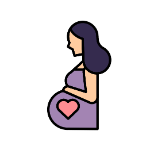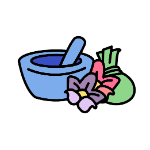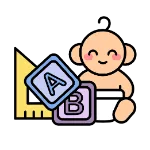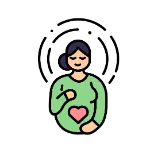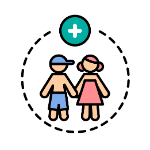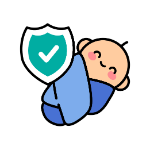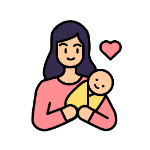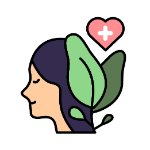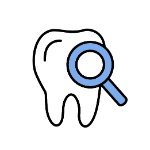
15 Common Health Problems And Diseases In Newborns
Being a new parent may be stressful, and that's understandable. Many new parents have no clue what to anticipate during their child's first year of life, yet illness is nearly inevitable, as newborns are more prone to infections or diseases than older children.
(Image credits to Canva)
Many of the diseases that new parents face are common and easy to cure at home, which is fortunate. Infants, on the other hand, are in danger of developing certain more serious diseases that need medical treatment. Here is our list of 15 common health problems and diseases in newborns that you should know about.
#1 Colic
Colic is common in infants, but it does not make it any easier for parents to deal with. Colic is a condition in which newborns cry nonstop for no apparent cause, especially in the evening. The specific origin of colic is unknown, however, some ideas suggest that it might be caused by gas, stomach-pain hormones, overstimulation by light or sound, or a developing digestive system.
(Image credits to Canva)
Colic in full-term newborns begins at two weeks and should be gone by the time the baby is three months old. If this disease persists, it might be due to a milk formula resistance or another underlying condition. It is best to see a doctor to get the problem diagnosed.
#2 Cold and Flu
Because of their vulnerable immune systems, infants are significantly more prone than adults to get infectious diseases from the environment. During their first year of age, most newborns will have severe colds, which will include coughing, sneezing, and a runny nose.
If your kid has a cold or the flu, it's always a good idea to see a doctor, as these minor diseases can quickly turn into pneumonia in small children. The doctor may advise you to take cold medicine that is safe for your baby. We don't advocate giving your child cold medication without first checking with their physician.
#3 Ear Infections
Infections in the ears are common in infants. When a baby gets an ear infection, he will be quite cranky and tug at his infected ear. Infections with viruses are typical, although they usually go away within a few days. Bacterial infections, on the other hand, can last for a long time and even result in hearing loss, necessitating antibiotic treatment.
#4 Constipation
During their first year of life, it's very uncommon for infants to have very irregular bowel movements, especially as new foods are introduced to their diet. Constipation and the inability to pass a solid stool are common when newborns first start eating solid meals. There are a variety of at-home therapies available, including dietary adjustments.
#5 Diarrhea
Diarrhea is a typical response in newborns to medications and infection. Keep your infant hydrated by giving him oral saline and water if he has diarrhea. Also, keep an eye on his stools; if the color or texture of his feces changes, see a doctor. Constipation, like diarrhea, is quite frequent in babies and newborns. Consult your baby's doctor if he or she has been constipated for more than three days.
#6 Bloated Belly
During feeding, some babies have a bloated stomach or an abdomen that feels tight to the touch. This is usually a problem of constipation or gas. However, if the condition persists for an extended period of time, consult your doctor. He or she will check your infant for any additional illnesses.
(Image credits to Canva)
#7 Coughing
If the milk is flowing too quickly, the infant may cough while being fed. Coughing and choking when swallowing might indicate an issue with the lungs or the digestive system. Coughing nonstop at night might suggest whooping cough or other respiratory issues. If your child coughs while being fed or while sleeping, you should take him to the doctor as soon as possible.
#8 Skin Issues
Some parts of the infant's body may have dry, blotchy, flaky skin or discoloration. These usually disappear within a few weeks since babies' skin layers are rapidly recovered. They don't need to be treated, and you shouldn't apply any skin creams or lotions on them.
(Image credits to Canva)
#9 Nappy Rash
The baby's diapers will frequently get moist since the baby is routinely fed. A diaper rash, which appears as redness or irritation in the bowel region, may occur in certain newborns. To avoid this, make sure the nappy is changed often and that the buttocks are well washed and dried before a new nappy is applied. Consult a doctor if the diaper rash continues despite proper treatment.
(Image credits to Canva)
#10 Jaundice
In newborns and babies, jaundice is pretty common. It happens when a baby's blood contains too much bilirubin, resulting in yellowish skin color. Because many newborns are born with neonatal jaundice, this is a rather frequent condition. It happens when a baby's liver isn't developed enough to eliminate excess bilirubin in the blood. Jaundice in newborns usually goes away with time. It should go away after 2 to 3 weeks following the baby's delivery in most circumstances. However, if it lasts longer than three weeks, it might be a sign of something more serious, and parents should consult their child's doctor.
#11 Fever
Fever is a symptom of the body's defense against illness. In babies and infants, however, a high and sustained fever exceeding 101 degrees can cause seizures and brain damage. If your child has a high fever, you should take him to the doctor for treatment.
(Image credits to Canva)
#12 Oral Thrush
Oral thrush is a yeast infection that affects newborns' tongues. This disease, also known as oral candidiasis, is quite prevalent among newborns. White lesions appear on the tongue and inside cheeks. If your child develops oral thrush, consult your doctor to see if it is severe enough to use antifungal treatment.
(Image credits to Canva)
#13 Vomiting
It is not uncommon for newborns to vomit or spit the milk they are fed. Burping newborns to keep them from vomiting up is a common practice among moms. If your baby throws up the milk after being fed and you see a greenish color in his vomit, and he continues to vomit, you may have a major problem. Infants can quickly become dehydrated, necessitating medical assistance and treatment. Lactose and breast milk intolerance is another prevalent condition that requires medical attention. An underlying illness or digestive difficulties might be causing frequent vomiting and spitting up of milk.
(Image credits to Canva)
#14 Bluish Skin and Apnea
The hands and feet of newborns are typically blue. However, the blue color vanishes over time as their bodies' blood circulation improves. However, if you detect a bluish hue around your baby's lips that lasts for a long time and is accompanied by breathing difficulties, it might indicate that the baby's heart and lungs aren't working properly. If your baby's breathing stops for 15 to 20 seconds and he has blue skin, he may have apnea. A cardiac issue is an underlying issue that requires medical attention and care.
#15 Anemia
Anemic women give birth to anemic children. Anemia is a condition in which a child's red blood cells are below normal for his or her age. Anemia is characterized by a shortage of hemoglobin, which indicates a low level of oxygen in the blood and a thickening of the blood. Medical attention is required because untreated anemia can be dangerous.
Health issues and illnesses in newborns and infants usually disappear on their own as babies get stronger and learn to adapt. Parents, on the other hand, should use extreme caution. Take your infant to the pediatrician for frequent checks, maintain hygiene, and, most importantly, keep a calm and quiet mentality. Please visit your doctor if your infant is experiencing any pain. Meanwhile, enjoy your baby's arrival and transition period. Every cough or sneeze isn't dangerous!
So how many of these diseases from our list of 15 common health problems and diseases in newborns did you know before? We hope you found our article helpful! In HappyPreggie you will find tons of articles on the health and wellness of your baby which we guarantee will help you out. Want to read more? Check out these 8 signs that show your baby is healthy and also 10 productive tasks you can accomplish while your baby naps.
